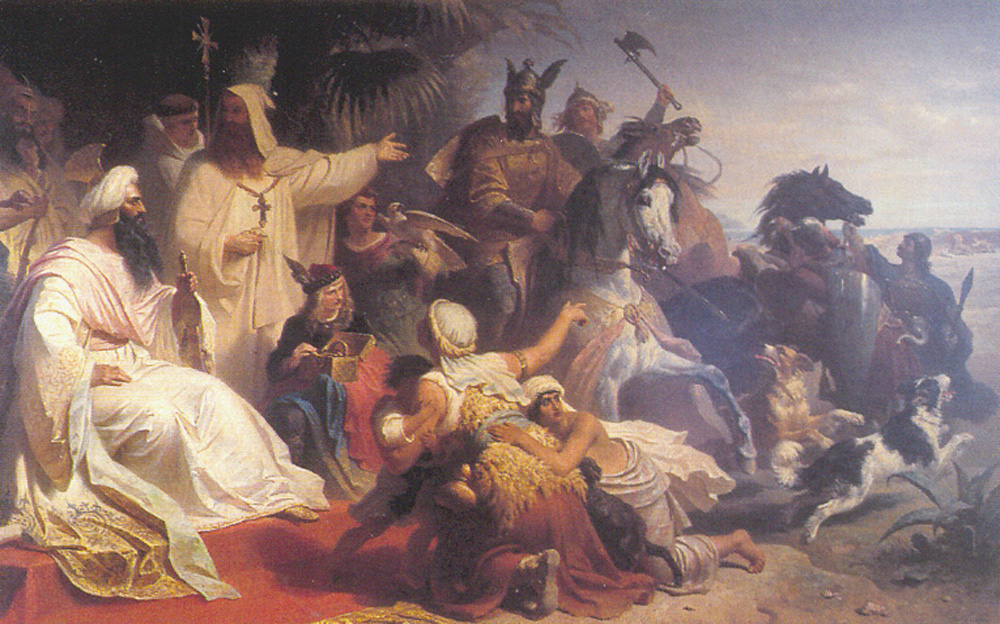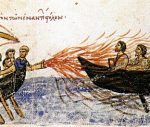The decline and fall of the Roman empire was a spur…to progress

Caliph Harun Al Rashid receives a delegation sent by Charlemagne, the Holy Roman Emperor, to Baghdad. The 19th century oil on canvas by Julius Kockert is at the Maximilianeum Foundation in Munich
/ TAKE UP ONE IDEA

“Too often…we enjoy the comfort of opinion without the discomfort of thought”
– John F. Kennedy
The West has long lamented the decline and fall of the Roman empire. But was it really a tragedy?
Walter Scheidel, professor of Classics and history at Stanford, recently wrote a thought-provoking piece in Aeon, arguing that the fall of the Rome was important because it occurred. Had the Roman empire not unravelled, he said “the world wouldn’t have become modern”.
How so?
The professor argues that the decline of Roman power broke the circle of “immense inequality”, bringing down “the plutocratic ruling class, releasing the labouring masses from oppressive exploitation” and actually helping the newly liberated ordinary classes become taller! This, he says, was because the working man could eat better.
More long term, he says, the imperial order became so broken it could never return. Though the Goths, Vandals, Franks, Lombards and Anglo-Saxons tried to take bits of the empire for themselves, the minor rulers, nobles and viziers in far-flung parts eventually assumed power.
Power-sharing literally occurred organically, as did localism and a system of checks and balance. As the Professor writes, “aristocrats made sure to check royal power: the Magna Carta of 1215 is merely the best-known of a number of similar compacts drawn up all over Europe. In commercial cities, entrepreneurs formed guilds that governed their conduct. In some cases, urban residents took matters into their own hands, establishing independent communes managed by elected officials. In others, cities wrung charters from their overlords to confirm their rights and privileges. So did universities, which were organised as self-governing corporations of scholars. Councils of royal advisers matured into early parliaments.”
It led to something that would later be called pluralism, which provided space for disruptive innovation.
Of course, historians, economists and political scientists are not agreed about cause and effect but, as Professor Scheidel says, “progress was born in the crucible of competitive fragmentation”.
It almost certainly wouldn’t have happened if the Roman empire hadn’t collapsed.

